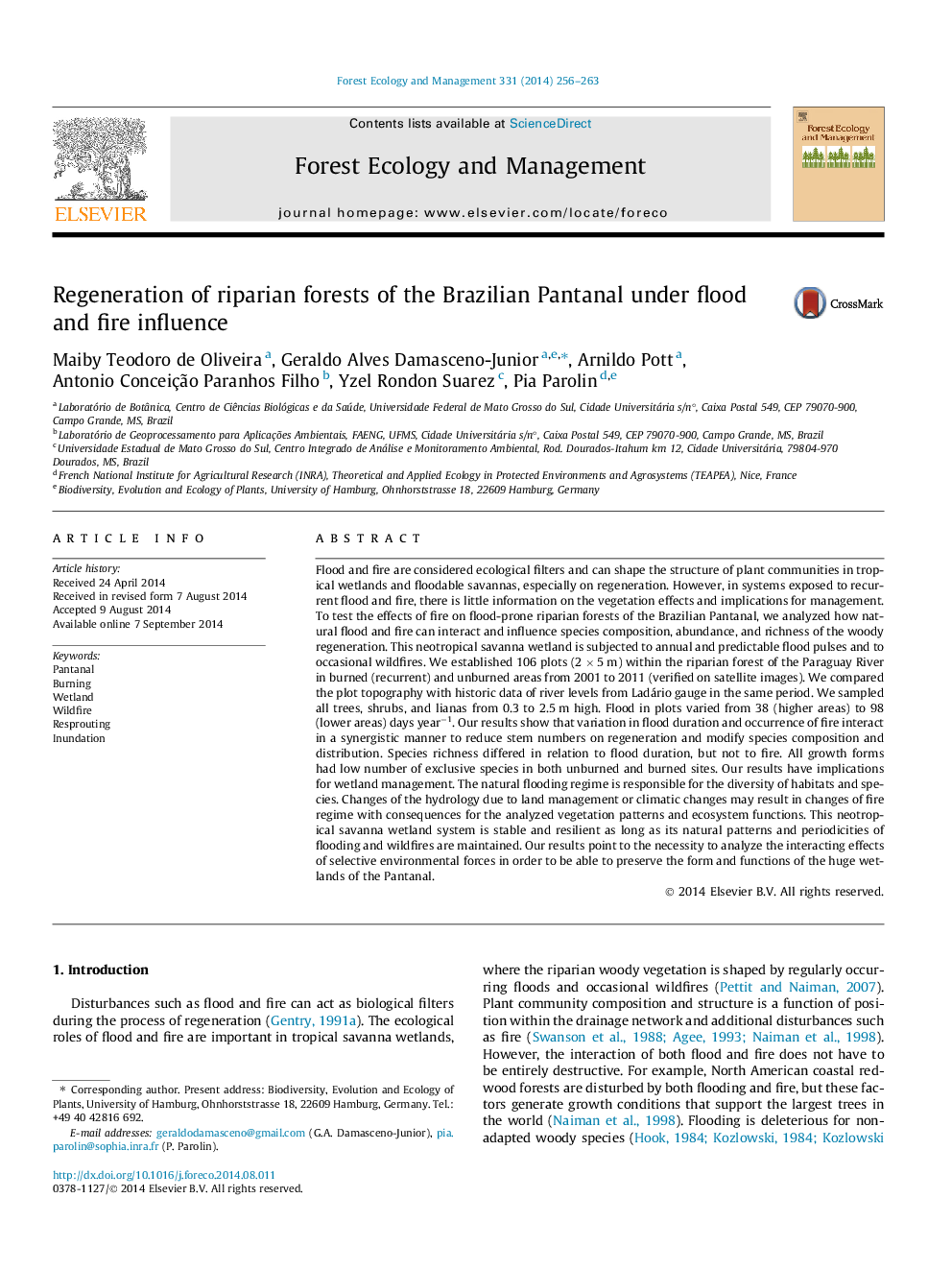| کد مقاله | کد نشریه | سال انتشار | مقاله انگلیسی | نسخه تمام متن |
|---|---|---|---|---|
| 86462 | 159189 | 2014 | 8 صفحه PDF | دانلود رایگان |
• Flood and fire can act as filters on the structure of riparian forests.
• We examined relations between woody regeneration and the interaction fire/flooding.
• Differences in abundance and species composition were associated to this interaction.
• Differences in richness were associated only with the time of flooding.
• Fire and flooding play an important role on this riparian forest regeneration.
Flood and fire are considered ecological filters and can shape the structure of plant communities in tropical wetlands and floodable savannas, especially on regeneration. However, in systems exposed to recurrent flood and fire, there is little information on the vegetation effects and implications for management. To test the effects of fire on flood-prone riparian forests of the Brazilian Pantanal, we analyzed how natural flood and fire can interact and influence species composition, abundance, and richness of the woody regeneration. This neotropical savanna wetland is subjected to annual and predictable flood pulses and to occasional wildfires. We established 106 plots (2 × 5 m) within the riparian forest of the Paraguay River in burned (recurrent) and unburned areas from 2001 to 2011 (verified on satellite images). We compared the plot topography with historic data of river levels from Ladário gauge in the same period. We sampled all trees, shrubs, and lianas from 0.3 to 2.5 m high. Flood in plots varied from 38 (higher areas) to 98 (lower areas) days year−1. Our results show that variation in flood duration and occurrence of fire interact in a synergistic manner to reduce stem numbers on regeneration and modify species composition and distribution. Species richness differed in relation to flood duration, but not to fire. All growth forms had low number of exclusive species in both unburned and burned sites. Our results have implications for wetland management. The natural flooding regime is responsible for the diversity of habitats and species. Changes of the hydrology due to land management or climatic changes may result in changes of fire regime with consequences for the analyzed vegetation patterns and ecosystem functions. This neotropical savanna wetland system is stable and resilient as long as its natural patterns and periodicities of flooding and wildfires are maintained. Our results point to the necessity to analyze the interacting effects of selective environmental forces in order to be able to preserve the form and functions of the huge wetlands of the Pantanal.
Journal: Forest Ecology and Management - Volume 331, 1 November 2014, Pages 256–263
